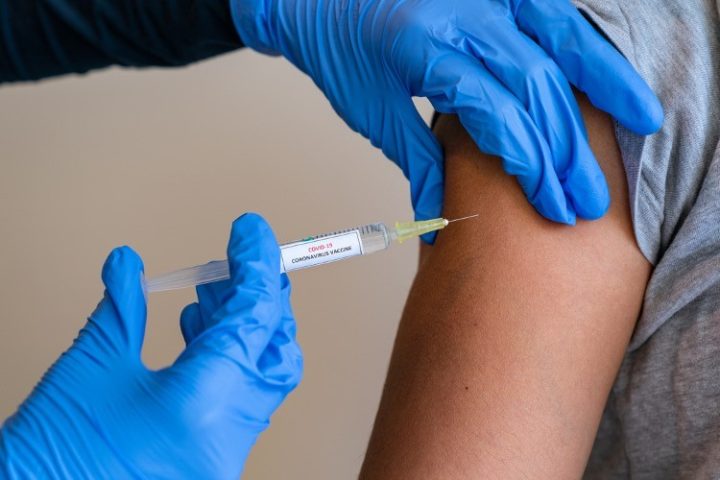
“Take the vaccine to return back to normal,” the government said. And so people did, yet the “normal” is somehow slipping away. COVID cases are on the rise in heavily vaccinated communities, masks are becoming a must in most public settings, and health authorities recommend getting more doses of vaccines as the government becomes more authoritarian and threatens people with the loss of employment if they don’t take the jab — which, ironically, makes no difference in preventing the spread of the virus, per the government’s own data (see here and here).
Many people’s suspicions have been confirmed by Kyle Beattie of the University of Alberta, Canada, who evaluated data from 145 countries, including the United States, and found that the rollout of COVID jabs was likely associated with a 38-percent increase of COVID cases and 31-percent increase in deaths per million.
The 99-page study, titled “Worldwide Bayesian Causal Impact Analysis of Vaccine Administration on Deaths and Cases Associated with COVID-19: A BigData Analysis of 145 Countries”(pdf), revealed that 89.84 percent of the 145 countries experienced a negative effect from the vaccines after they were made available.
From the study:
Results indicate that the treatment (vaccine administration) has a strong and statistically significant propensity to causally increase the values in either y1 or y2 over and above what would have been expected with no treatment. y1 showed an increase/decrease ratio of (+115/-13), which means 89.84% of statistically significant countries showed an increase in total deaths per million associated with COVID-19 due directly to the causal impact of treatment initiation. y2 showed an increase/decrease ratio of (+105/-16) which means 86.78% of statistically significant countries showed an increase in total cases per million of COVID-19 due directly to the causal impact of treatment initiation.
The COVID death rate rose significantly, too. Notably, countries that deployed vaccines and saw the sharpest rise of COVID deaths in 2021 were the ones that saw some of the lowest death rates a year before when they had no vaccines to administer (e.g., Thailand, Vietnam, Mongolia, Taiwan, Seychelles, Cambodia, etc.). Per the study, one the vaccine rollout began, these countries started seeing hundreds or thousands of percentage increases in total COVID deaths and cases per million.
“But,” one might say, “what if there were other factors that impacted that dynamic? What if the cases and death occurred in unvaccinated people? What if that happened because of the more contagious Delta strain?”
To that, Beattie replies,
As to the first point, while this data is still inconclusive … there is beginning to emerge a pattern of a similar amount of cases and deaths of COVID-19 in relation to the population that is vaccinated as is evidenced by public records from Public Health England and the Israeli Ministry of Health. In addition, if that counterargument were true, we would expect to see countries with higher vaccination rates also have lower (or negative) impacts from vaccine administration on rates of cases and deaths associated with COVID-19.
Instead, we see the opposite, a low positive correlation … between total vaccinations per hundred and the impact of vaccine administration on cases associated with COVID-19. These results concur with the fact that the vaccines only offer a low absolute risk reduction (ARR) (0.8-1.9%) in the first place … and have been shown to wane over time to an even lower ARR.
This means that the vaccines’ true efficacy was not 95 percent, as people were initially told. It turned out to be a meager 1.9 percent at best, which then decreased. Hence the push to boost the population not just on an annual basis, but after 2-6 months following the completion of the initial vaccination series despite the world’s top experts calling such an approach “not sustainable or affordable.”
As for the Delta strain, the study argues,
It is not likely that the Delta variant arrived in each of these countries precisely at the time each vaccine administration also started. Rather, it is more likely that the vaccine administration causes a bottleneck effect in each region and helps to create even more deadly variants as [Drs.] Ausschuss et al. (2021), Bossche (2021), and Ricke and Malone (2020) all warned, which may translate into a rise in cases and deaths associated with COVID-19 as a result of the causal impact of vaccine administration.
While political elites and the mainstream media blame the unvaccinated for “breeding the variants,” the variants are actually occurring in people vaccinated with “leaky” vaccines, as argued, among others, by Nobel Prize winner Dr. Luc Montagnier and American Drs. Paul Alexander and Geert Vanden Bossche.
The study also points out “the overwhelming and historically unprecedented quantity of reports of vaccine adverse events in the Vaccine Adverse Events Reporting System (VAERS) … suggesting a highly untested vaccine.”
Given the “robust, durable, and long-lasting” natural immunity that people develop after recovering from SARS-CoV or SARS-CoV-2 infection, “the risks of these vaccines likely outweigh the benefits for most if not all of the population,” per the study.
The study concludes:
The results of this study taken together demonstrate a product that directly causes more COVID-19 associated cases and deaths than otherwise would have existed with zero vaccines. Consequently, these experimental gene therapy injections known as COVID-19 vaccines cannot be mandated by any public policy that intends to continue following the regulations of the Nuremberg Code (Code 1998), the Helsinki Accords (Association and others 2009), and the Human Rights Declaration on Bioethics (UNESCO 2019).
Beattie suggests future research should focus on all-cause mortality rates for a “better understanding of the overall causal impact of COVID-19 vaccine administration on the general health of the population.”





